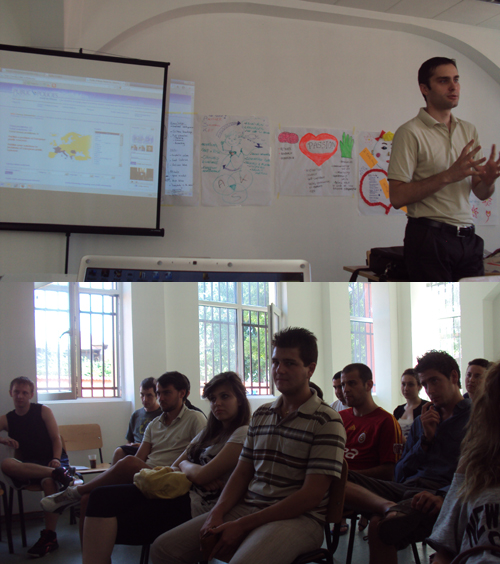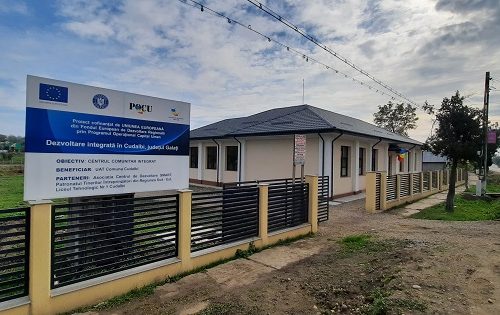Training ENGAGEMENT in Bucharest

During July 11-18, the Center for Sustainable Community Development, partner of SMART Method of Public Policy, is implementing an exchange program called “Living Entrepreneurship.” The beneficiary, the Students’ Organization from the Politechnic University of Bucharest, has received a grant from the European Commission’s Youth in Action Programme and is hosting approximately 35 young people from Holland, Bulgaria, Poland, Turkey, Greece, Slovenia, and Romania. Living Entrepreneurship is an exchange project aimed at promoting social and business entrepreneurship as a way to support active youth participation in community development. Entrepreneurship is also a way to fight the effects of the economic crisis like unemployment or poverty. During the project, organizers are using the “Living Library” and “SMART Method of Public Policy” as active participation methods to develop the entrepreneurial skills of the participants.
The training ENGAGEMENT took place during July 14 – 15 and lasted for approximately 3 hours overall. During this time, participants were given a problem of European public concern, brainstormed raw solution ideas, made plenary presentations of the solutions, identified four options to address the problem, worked on developing the options, and made presentations of the results of their working groups.
The problem was first published on www.Public-Policies.eu, the civic engagement platform serving SMART Method of Public Policy at a European level: “Entrepreneurial behavior still lacks effective stimulation and support in schools all-over Europe. Young people are very creative and if given stimulating resources in schools, they have many chances to innovate and become successful business or social entrepreneurs. What should European institutions do in order to develop the innovative potential of young people while they are still in school?”
Step 1: Participants first worked on country working groups to find raw solutions:
Step2: Then, they made plenary presentations of their solutions:
Step 3: Organizers and participants identified four options to address the problem: maintaining the status quo, developing exchange programs for arts and crafts, developing the school curricula, and allowing companies in schools. They developed these options in mixed working groups:
Step 4: At the end, moderators made plenary presentations of their options, laying the basis for the policy paper that will be sent to European decision makers for community action:















